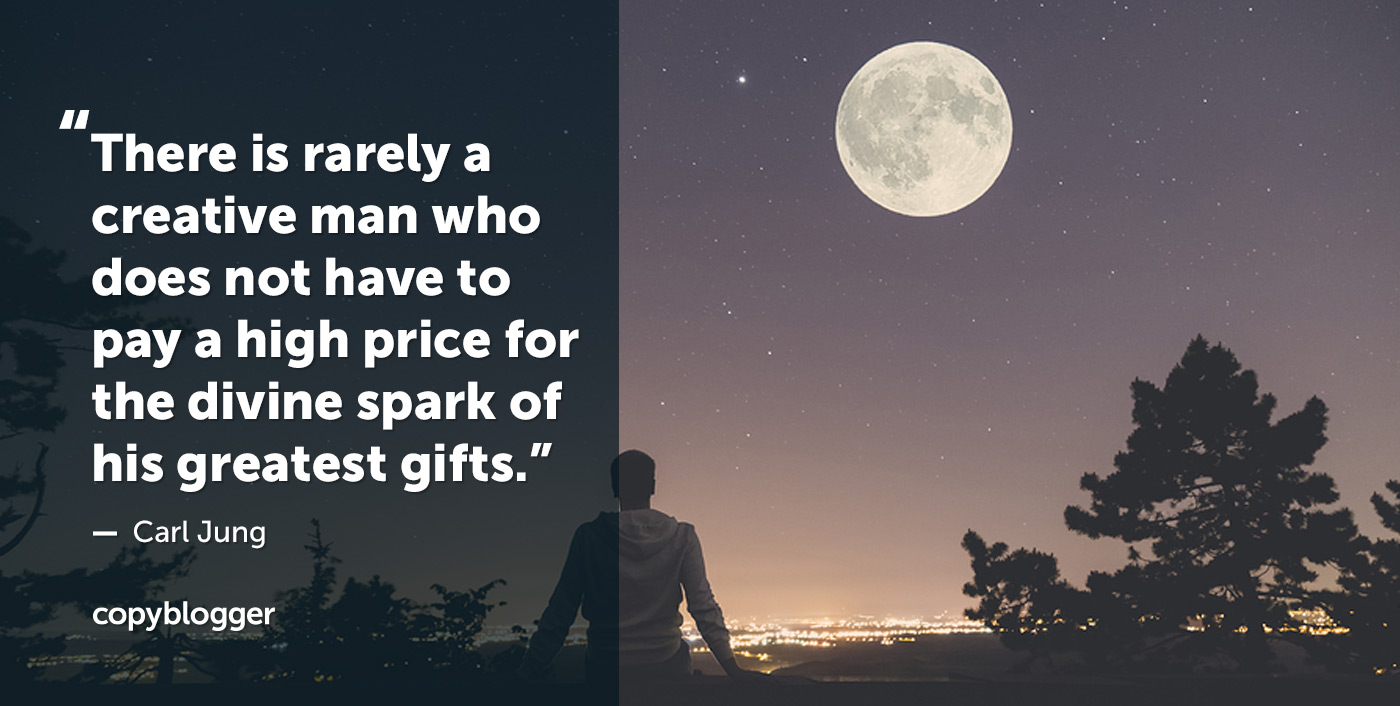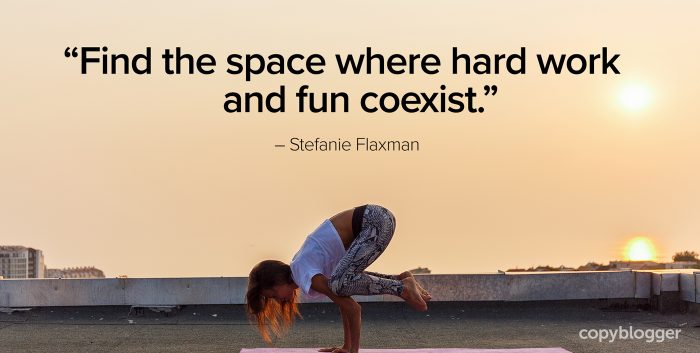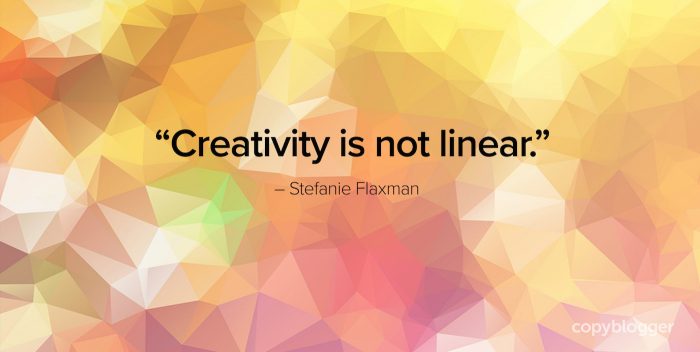It happened again.
You were out to dinner with your Writer Friend, and the waiter came over to see if you needed anything. This led to a short, friendly conversation with him.
As he walked away, your meal companion apologized for reaching into her purse to get her phone.
She opened her Notes application and explained:
“I have to jot that down. What he said was so perfect for something I’m working on. It just gave me a bunch of ideas.”
You sat back and took a sip of your Syrah while thinking:
“We’re supposed to be having a relaxing dinner. The last thing I’m thinking about right now is work. She’s not doing real work anyway. It’s annoying that she calls it work.”
The nonsensical nature of creative work can bewilder onlookers.
But is creative work that much different from other types of work?
The development of a creative career
Since a creative career might be thought of as “fun,” it can also get tangled up with ideas about “luck.”
However, “fun” is not separate from hard work. A fun job can be challenging. You can love work that requires a lot of time and effort.
“Luck” puts a spotlight on an exquisite five-course meal, beautifully plated and served on an elegant banquet table. It ignores the kitchen full of under/over-cooked mistakes and dirty dishes.
I’m the first one to admit that sometimes people are just in the right place at the right time, but I’d also argue that being in the right place at the right time is a direct result of relentless research.
Creative professionals might feel lucky to have their positions, but luck wasn’t the main factor that got them there.
Paying your dues
All jobs require experience, and creative jobs are no exception.
For example, if you want to be a lawyer, you go to law school, pass the Bar Exam, and then apply for the appropriate positions for recent grads.
You’ve also likely had jobs related to the legal profession while you were a student.
If you want to be a professional writer and content marketer, it has to be part of your nature to create when no one is watching.
Artists develop their own bodies of work — most of the time with little or no direction from external sources.
They practice.
They become assistants or apprentices to learn more about their desired fields.
They complete projects to demonstrate their abilities to write, paint, draw, sculpt, etc.
It’s not luck; it’s determination.
And those who succeed have failed faster and found better ways to realize their ambitious dreams.
Creative work: it’s about the end result
Here’s where the split happens.
While attaining a creative position is similar to how you land other types of jobs, the day-to-day activities of a creative job often look different.
“The dynamic principle of fantasy is play, a characteristic also of the child, and as such it appears inconsistent with the principle of serious work.
“But without this playing with fantasy no creative work has ever yet come to birth. The debt we owe to the play of imagination is incalculable.
“It is therefore short-sighted to treat fantasy, on account of its risky or unacceptable nature, as a thing of little worth.” – Carl Jung
In other words, creative work can be a hot-ass mess — until it’s not, and you have the precise creation you need.
Rather than tracking the completion of exact tasks during the workday in order to demonstrate that you’re making progress, the final product you deliver is what matters.
That’s why your Writer Friend is still working when you’ve switched off for the day.
As much as she might try to set boundaries around her work, that hot-ass mess may still be simmering at 6:00 p.m. (and not ready to serve).
Emilia Fart, lollipops, and “Goodbye”
I was familiar with YouTuber Emilia Fart, but I never thought I’d like her videos (despite her 750,000+ subscribers).
I assumed the videos were just silly. And I already have go-to channels when I need a silly-fix.
No one had told me they were absurdist.
That’s a completely different story.
“Absurdist” isn’t even entirely accurate since the tone and subject matters in her videos vary.
But the videos on her channel (whether performance art or earnest) are intelligent … and heartfelt … and thoughtful.
I was genuinely surprised and impressed last month when I clicked on one of Emilia’s videos titled “Goodbye.”
I’m not sure why I clicked on it. Maybe I was intrigued by the sprawled out pile of lollipops that appear in the video thumbnail.
I know I expected to check it out for two minutes, perhaps find out a bit more about the candy, and then lose interest.
Instead, I watched all 17 minutes and the time went by quickly.
The themes Emilia covers are related to this post’s topic …
Creativity can be superficial, hollow, and disappointing
It can lead to nowhere and nothing.
But creative professionals know another pathway.
They say “goodbye to empty” and “hello to purpose.”



Reader Comments (19)
Great blog and so true. As a designer and a small business owner, I am always looking for ideas for ongoing projects and rarely ‘switch off’ like an office based job might especially if I have a looming deadline.
My final design end results may look fairly simplistic, but there has been a thorough brief analysed, thought process and probably many alternative versions produced before I get to the end result that I am happy to present to the client.
People who don’t do creative work professionally have no idea how much work goes into something that looks “simple.”
Terrific example, Louise — thanks for sharing!
Help! I broke the air! (I was punching my fist through it as I read your article.)
Tremendous.
Thanks, Tim!
I love your quote, “Creativity is not linear.” That is so true. Working with clients to create their book or blog, I have many times started in one direction with them only to have the desired end result look much different than the original concept. The pathway through that is always interesting!
When an idea hits me, regardless of the time of day or my location, you’ll find me taking note of it for later reference. I enjoy the challenge of being an editor, writer, and writing coach because every client and every project is unique. The pieces of each puzzle fit together so differently.
You perfectly captured what it’s like to work in a creative field. Thanks for sharing!
You’re always learning while working — maybe that’s part of the reason why it doesn’t “look like work” to some!
Dear Stefanie,
I really liked your story in the beginning of the post about being at dinner with a writer friend. It gives me an idea of what my wife might be going through when I’m capturing ideas all day long. I might think that she thinks I’m not really doing anything but this post puts to rest that assumption. Creative work is immeasurably important.
All I can do is do my creative work and become a professional. I am so excited for the future!
Thanks for writing this high quality post.
Sincerely,
Jesse Creel
Putting in the time and consistently delivering results can lead to that “professional” status! Just like other lines of work.
As a creative professional it can be really frustrating. Friends and even family think you don’t do work. They instead think you click a few buttons on a computer all day.
It’s hard because our creative brains never turn off. We are always thinking of our next creation. Next time I get that look for pulling out my phone to jot down an idea I am sending my friends this article! Perhaps then they will get it!
I’m thrilled if this post helps in some small way, Chris!
It was beyond the scope of the article, but I’m thinking about what “work” actually is or means to people.
Do you have to be doing something unenjoyable for it to be thought of as “work?” Does someone have to give you specific orders or directions for it to be “work?”
It’s fascinating that being a “self-starter” can be a desirable quality on a resume — but the work self-starters perform often doesn’t “look like work” to others.
Sometimes a good amount of creative work can be accomplished in only a short period of time, and we extract a lot of value from decompressing (getting ideas in the shower) as well, which can cause eye rolls from others.
Interesting stuff.
Dear Stefanie,
Everyday is my Lincoln log set and then I dream.
Loved this post
Roland
I like that, Roland!
As someone who’s just starting to become a writer in Patreon, I started panicking if I could really make it. But reading this comforts me that I’m not alone.
I began thinking, “I should’ve done this first, I should’ve done that first” but the quote “Whatever you’re meant to do, do it now. The conditions are always impossible” has calmed down my fears a bit to accept that I still have a lot of work to do.
I began to understand my creative career path better upon reading your line, “And those who succeed have failed faster and found better ways to realize their ambitious dreams.”
I just want to say thank you for writing this and I’m thankful for opening my email today.
Working toward a goal is typically more awkward than elegant — for everyone.
Thanks so much for painting creative careers in such an honest, authentic light! So many people think that anything creative-based is all fun and no work, while never realizing that it’s fun because it’s such hard work. And even though having to be creative on demand is exhausting, I’ll always be grateful to hold such an awesome job!
Right on, Madison!
Once in a blue moon, I come across refreshingly insightful content. This was one of those times. Thank you for writing this piece, Stefanie!
I appreciate that a lot, Andrea.
This article's comments are closed.